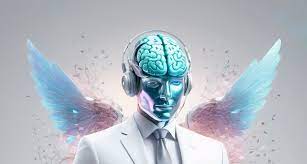It has been a year since ChatGPT made its debut to the general public, a momentous occasion that had a significant impact on how people around the world viewed artificial intelligence. Many people are in awe of the astounding capabilities of an artificial intelligence programme such as ChatGPT. Sam Altman, the CEO of OpenAI, has become a symbol of the ongoing revolution in artificial intelligence. OpenAI is the company that is leading the charge in creating this. Recent happenings within the company, on the other hand, have taken an unexpected turning point. An uproar was caused among the staff members as a result of the unexpected dismissal of the Board of Directors, which included Sam Altman. Over the course of just four days, OpenAI went through three different CEO personnel changes. On the other hand, the most intriguing discovery was the appearance of a mysterious force that was responsible for this upheaval. This force was Q-Star, an artificial intelligence entity that was shrouded in mystery.
A number of researchers working for OpenAI wrote a letter to the board of directors prior to Sam Altman’s dismissal. In the letter, they expressed concern regarding the development of a highly powerful artificial intelligence that could pose a risk to humankind. This artificial intelligence, which was given the name Q-Star, demonstrated remarkable capabilities and was able to solve difficult problems and predict future events to a certain extent. The internal designation for this artificial intelligence was changed to Q-Star, which raised concerns about the implications of this change.
One of the most prominent antagonists in Tom Cruise’s most recent Mission Impossible film, “Dead Reckoning Part 1,” was not a human but rather an artificial intelligence that was given the name Entity. Because of its omnipotence, this artificial intelligence was able to manipulate people and predict the future through the use of mass surveillance.
- Artificial General Intelligence (AGI) vs Weak Artificial Intelligence (AI)
Foreseeing events ten or fifteen years in the future is not part of the predictive capability of artificial intelligence. On the other hand, it is particularly effective at making short-term forecasts, such as predicting the outcomes of specific situations for the following day or week. The term “Artificial General Intelligence” (AGI) refers to a type of artificial intelligence that is capable of performing a variety of tasks more effectively than humans. Existing artificial intelligence models, such as ChatGPT and MidJourney, are classified as Weak AI. These models excel in particular tasks, but they do not possess the versatility of artificial general intelligence (AGI).
In the beginning, OpenAI was a non-profit organisation with the goal of developing artificial general intelligence for the benefit of humanity. All ten of the company’s co-founders, including Altman and Musk, as well as other influential individuals such as Ilya Sutskever and Greg Brockman, have committed a total of one billion dollars. In 2019, however, Altman took over as CEO of the company, which resulted in a change in the company’s overall direction. Moving forward in time to November 17, 2023, the board of directors abruptly terminated Altman’s employment.
OpenAI Global LLC, the company’s corporate subsidiary that operates for profit, was the source of the company’s turmoil. It had been planned from the beginning to limit profits to one hundred times the initial investment, but Microsoft ended up investing a staggering one billion dollars in the company. Over the course of four years, it amassed thirteen billion dollars in investments, with Microsoft holding a forty-nine percent stake. Concerns regarding the scope of commercialization and its potential effects were brought up as a result of the delicate balance that exists between activities that are for profit and those that are not for profit.
Concerns were raised among OpenAI’s ranks as a result of the appearance of Q-Star, an artificial general intelligence that was kept under wraps. Its capabilities, which were only known to those who were on the inside, revolved around reinforcement learning, which is a technique in which artificial intelligence learns from human feedback in order to improve decision-making.
Questions were raised regarding the capability of Q-Star to forecast and influence a variety of aspects of human life, ranging from elections to business dealings. These questions sparked debate. The possibility that artificial general intelligence (AGI) could operate solely on mathematical algorithms and be immune to human biases has increased concerns regarding the future course of OpenAI.
- Disputes and Discord Caused by OpenAI
The for-profit push came into conflict with conservative approaches that placed an emphasis on the safety of artificial intelligence, led by Ilya Sutskever. The fact that this discord has become more intense after the release of ChatGPT+, the launch of the API, and the unveiling of GPT-4 is indicative of a shift towards excessive commercialization. While Altman was concentrating on future launches and finding ways to increase profits, Ilya was putting safety protocols first.
The company was confronted with a critical juncture following Altman’s dismissal and subsequent reinstatement. OpenAI’s dependence on its workforce was highlighted by Sam’s return to his position as CEO, which was supported by more than ninety percent of employees threatening to resign. An important turning point was when Ilya, despite his concerns about his own safety, found himself in agreement with the necessity of the company’s continued existence.
In the aftermath of the conflict, two board members were removed from their positions, and new board members were appointed. Because of Microsoft’s ownership stake in OpenAI, the situation became more complicated, which ultimately resulted in Sam being reinstated as CEO. This change in power represented an important step towards OpenAI’s stability and governance when it occurred.
- OpenAI’s Future: Moving Forward in the Future
Microsoft’s vested interest in artificial intelligence is reflected in Satya Nadella’s position on the board of directors of OpenAI. There is still a lack of clarity regarding OpenAI’s future course of action, which may be profit-driven or aligned with its non-profit mission. Arguments and conjectures regarding the impact on the development of artificial general intelligence (AGI) and its implications for the future of humanity are ongoing.
Recognising the potential of artificial intelligence in order to successfully navigate a world that is constantly evolving is necessary. It is essential to continue to comprehend the implications of the AI landscape as it continues to develop.

 Cart is empty
Cart is empty 